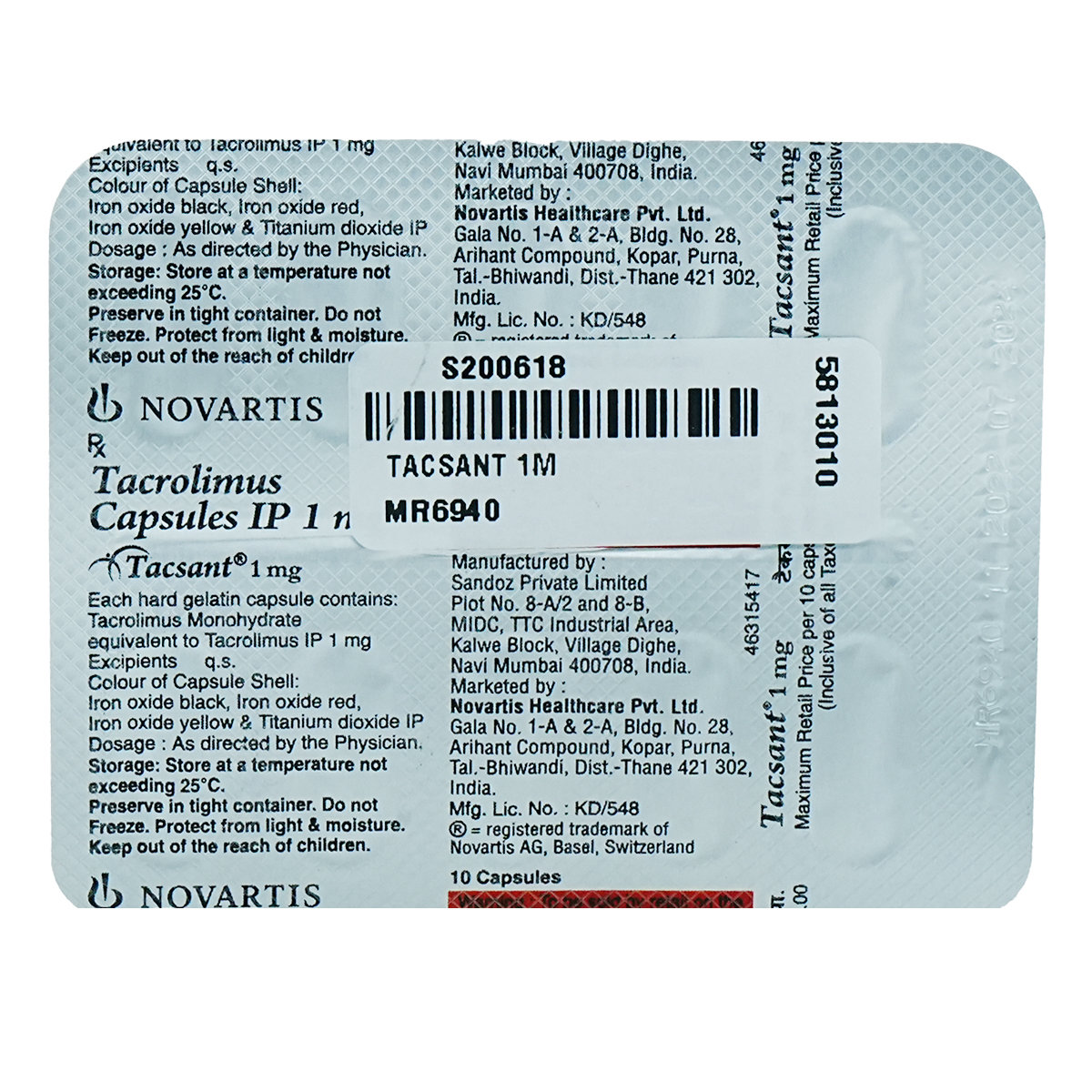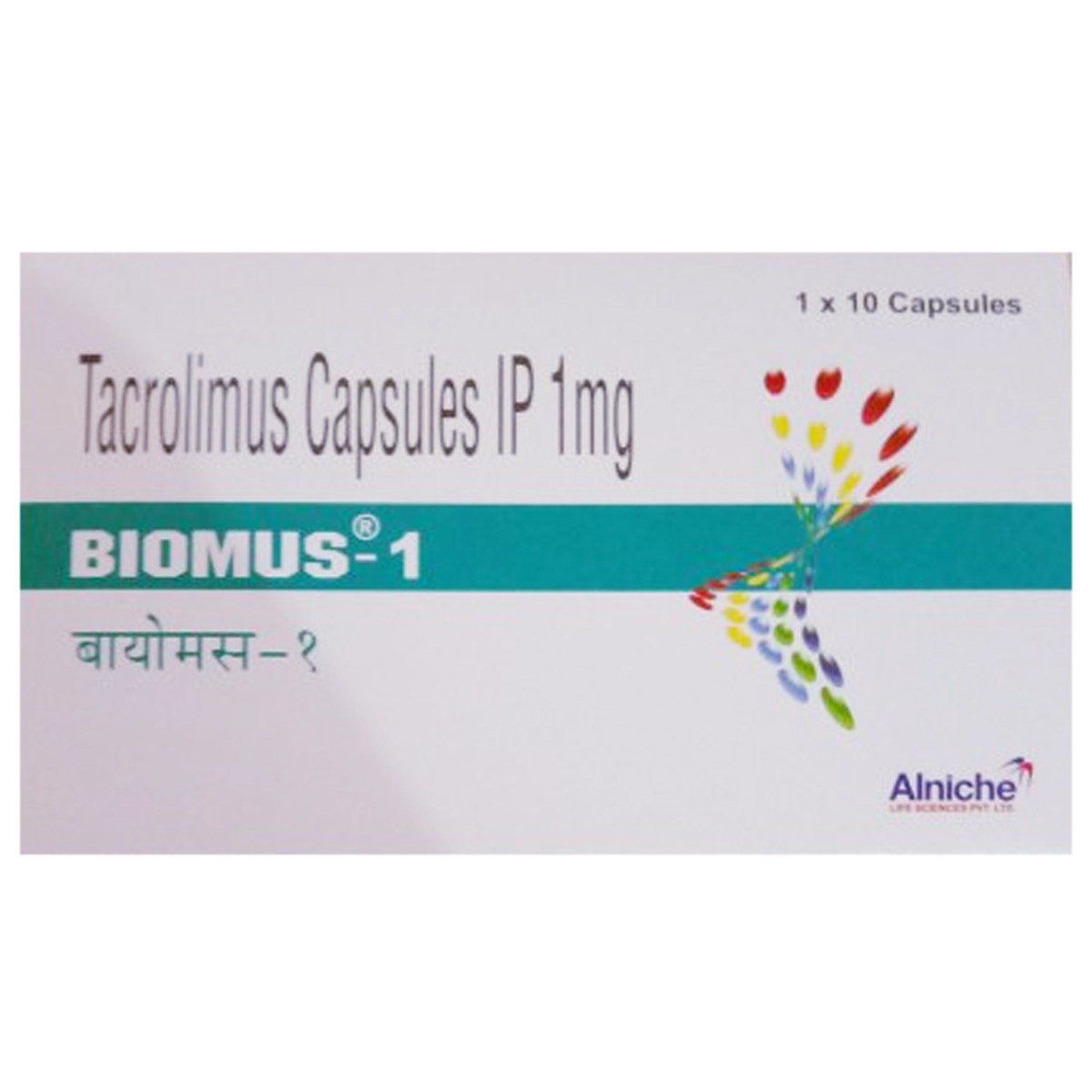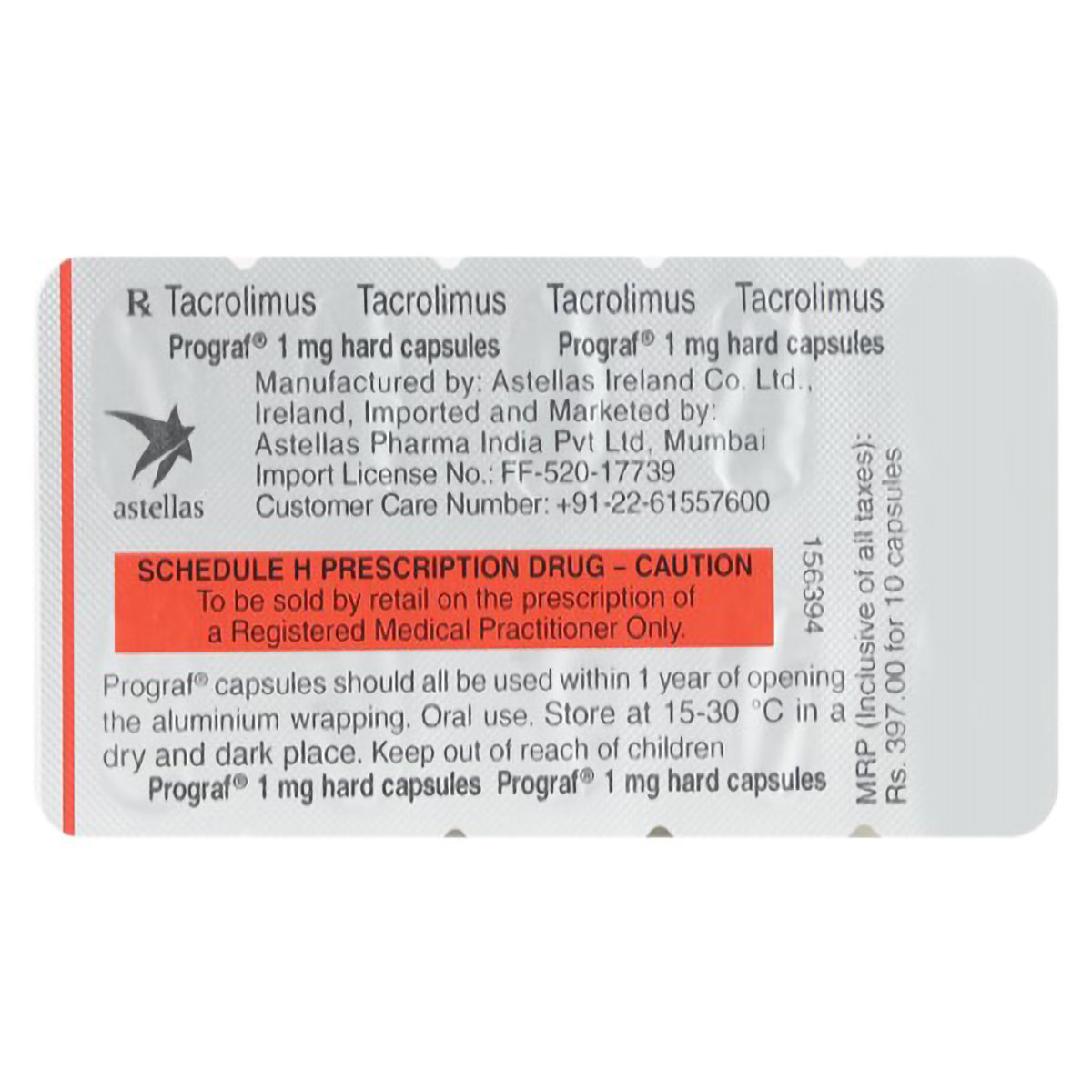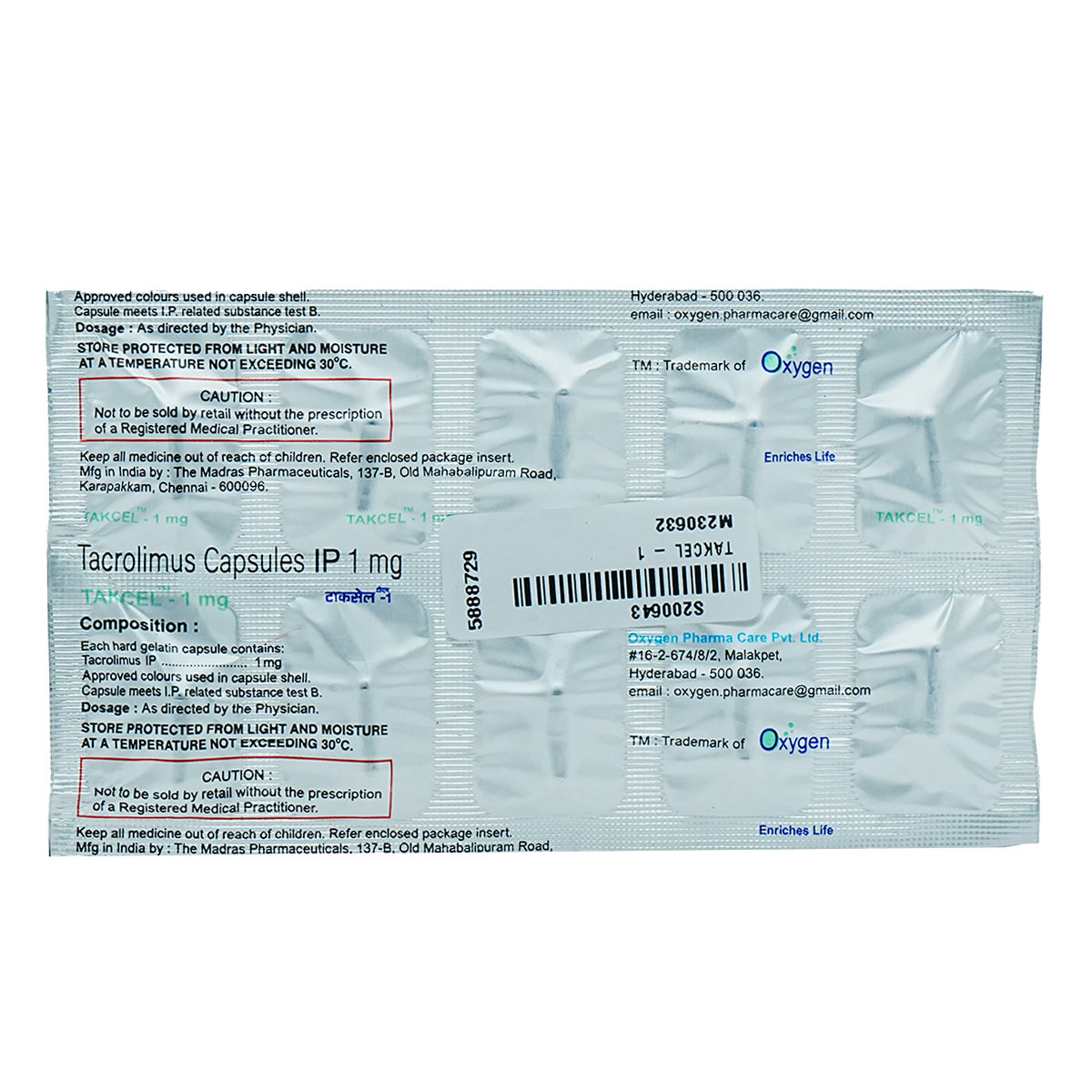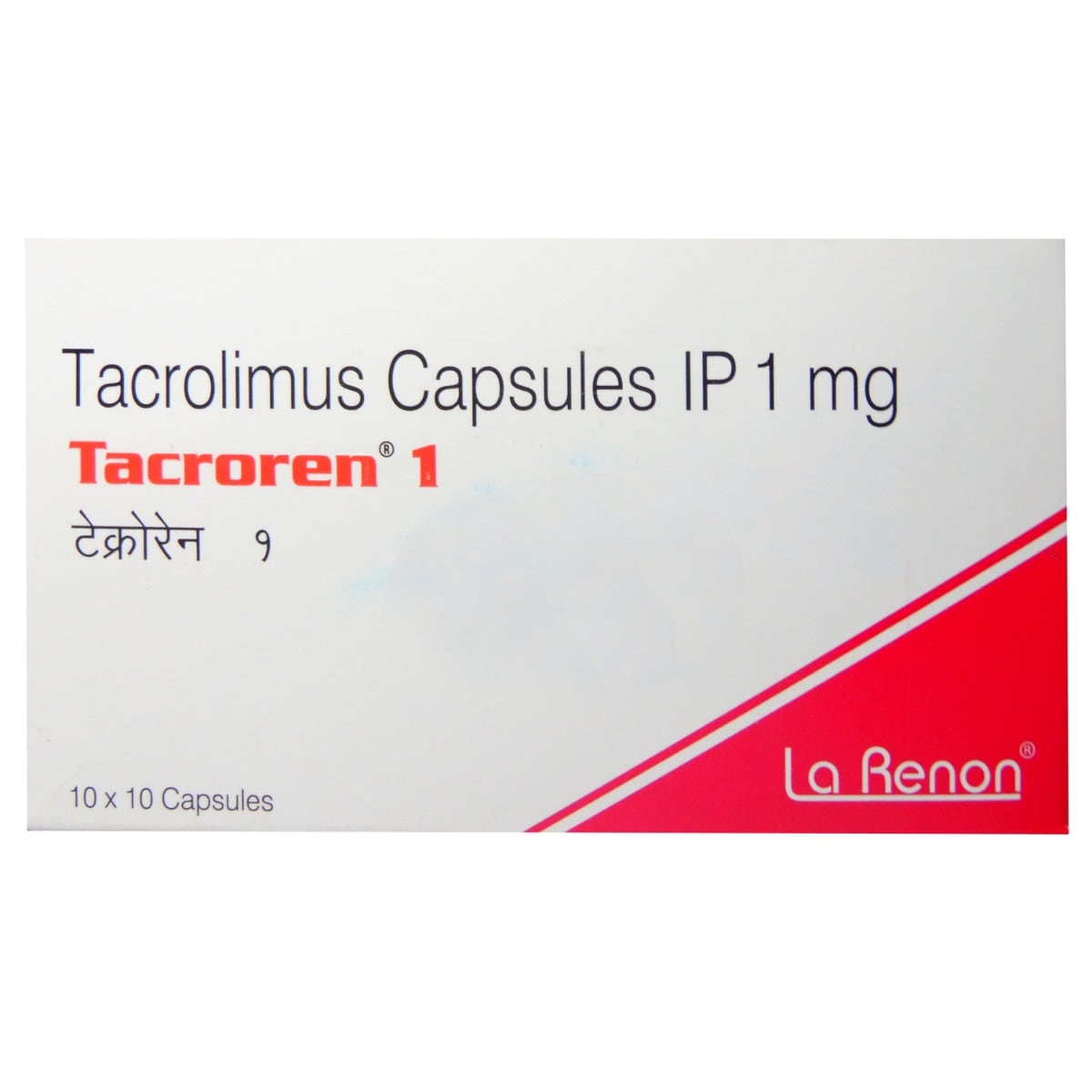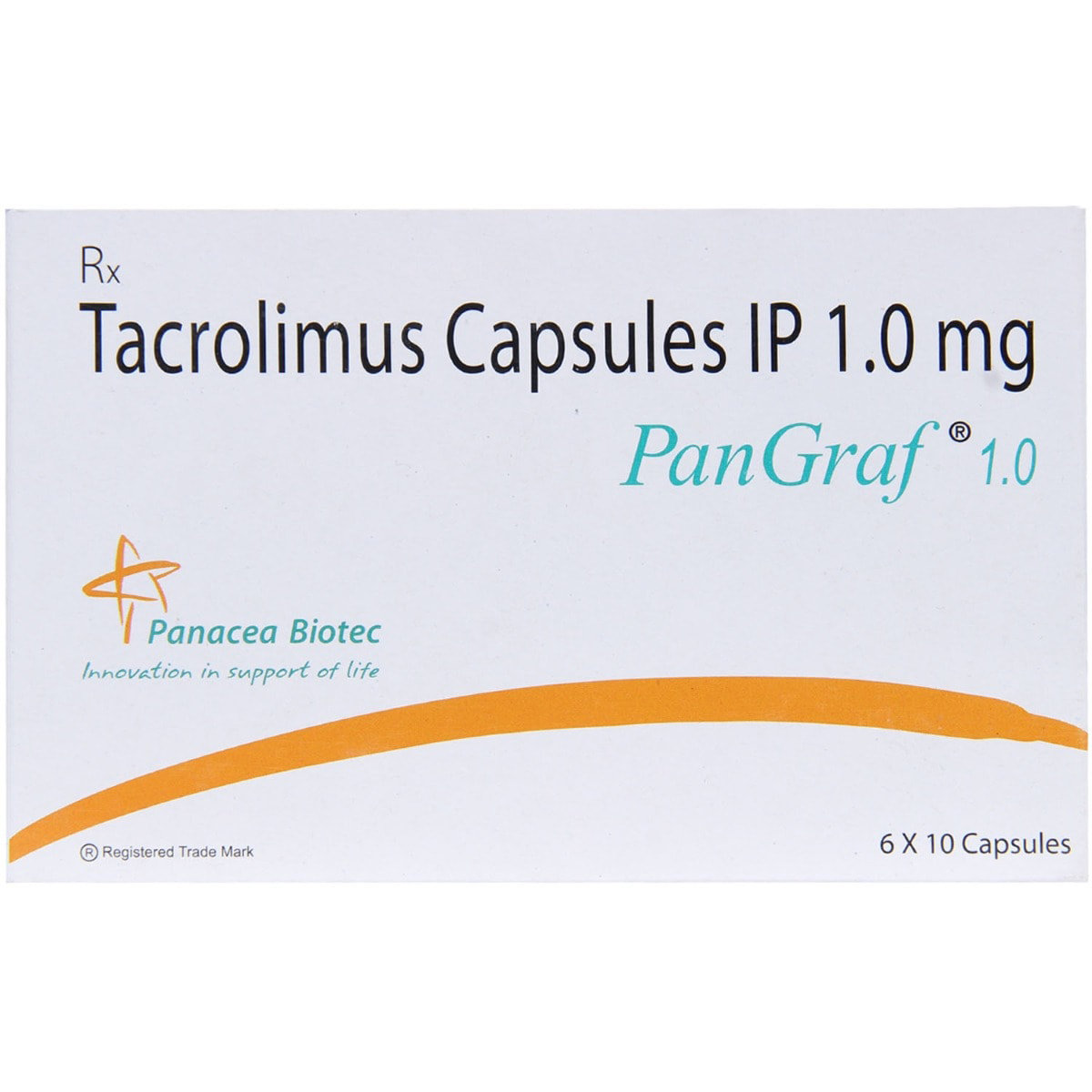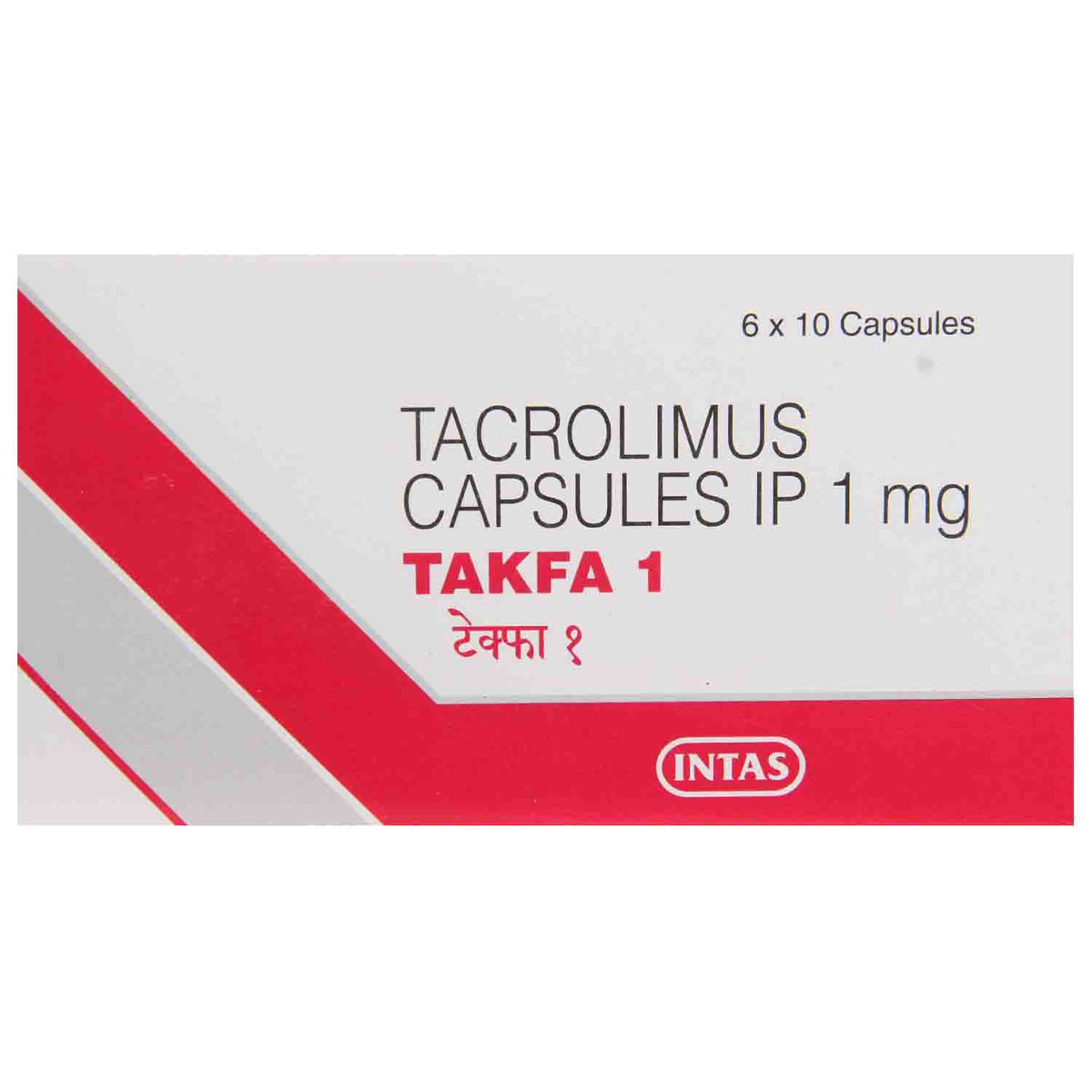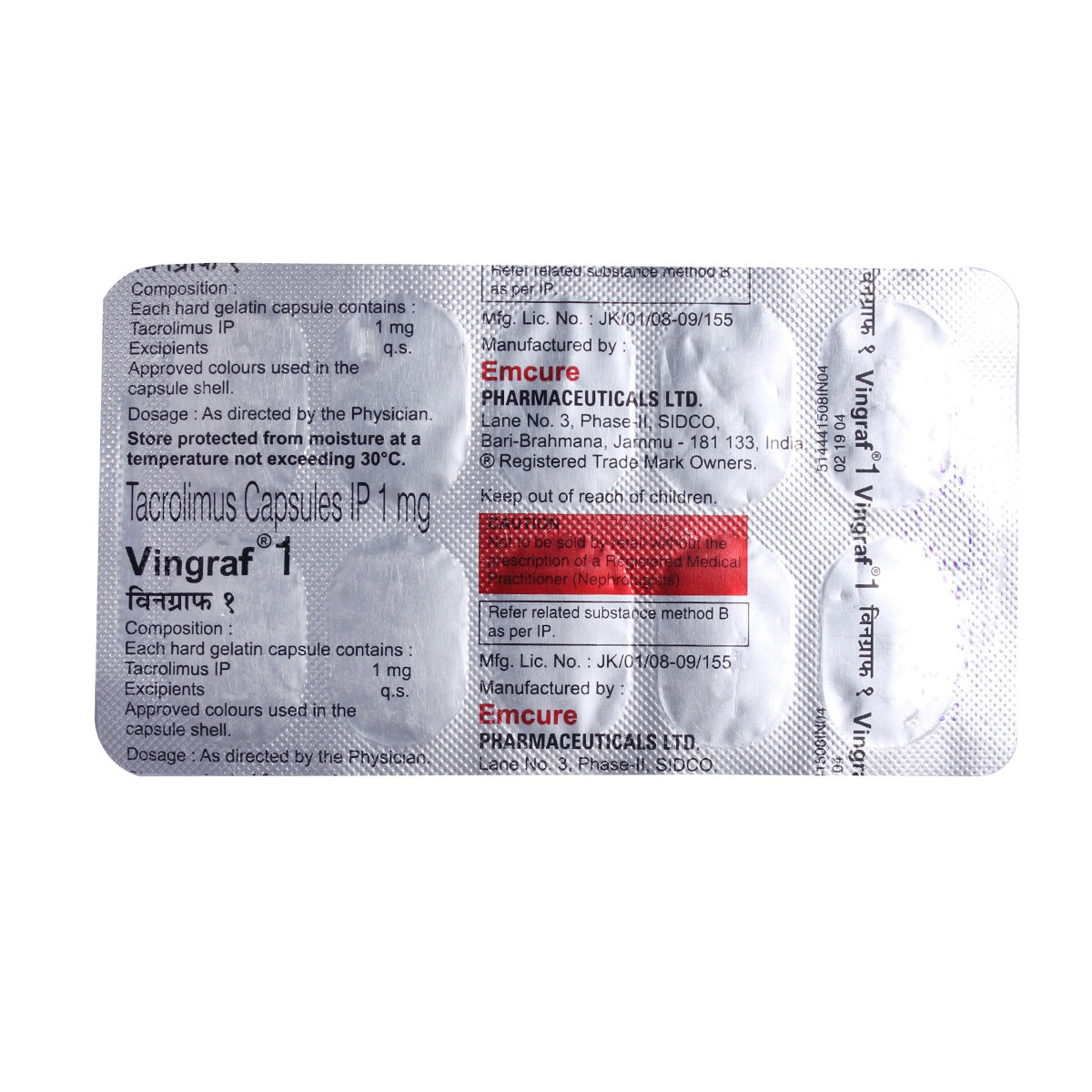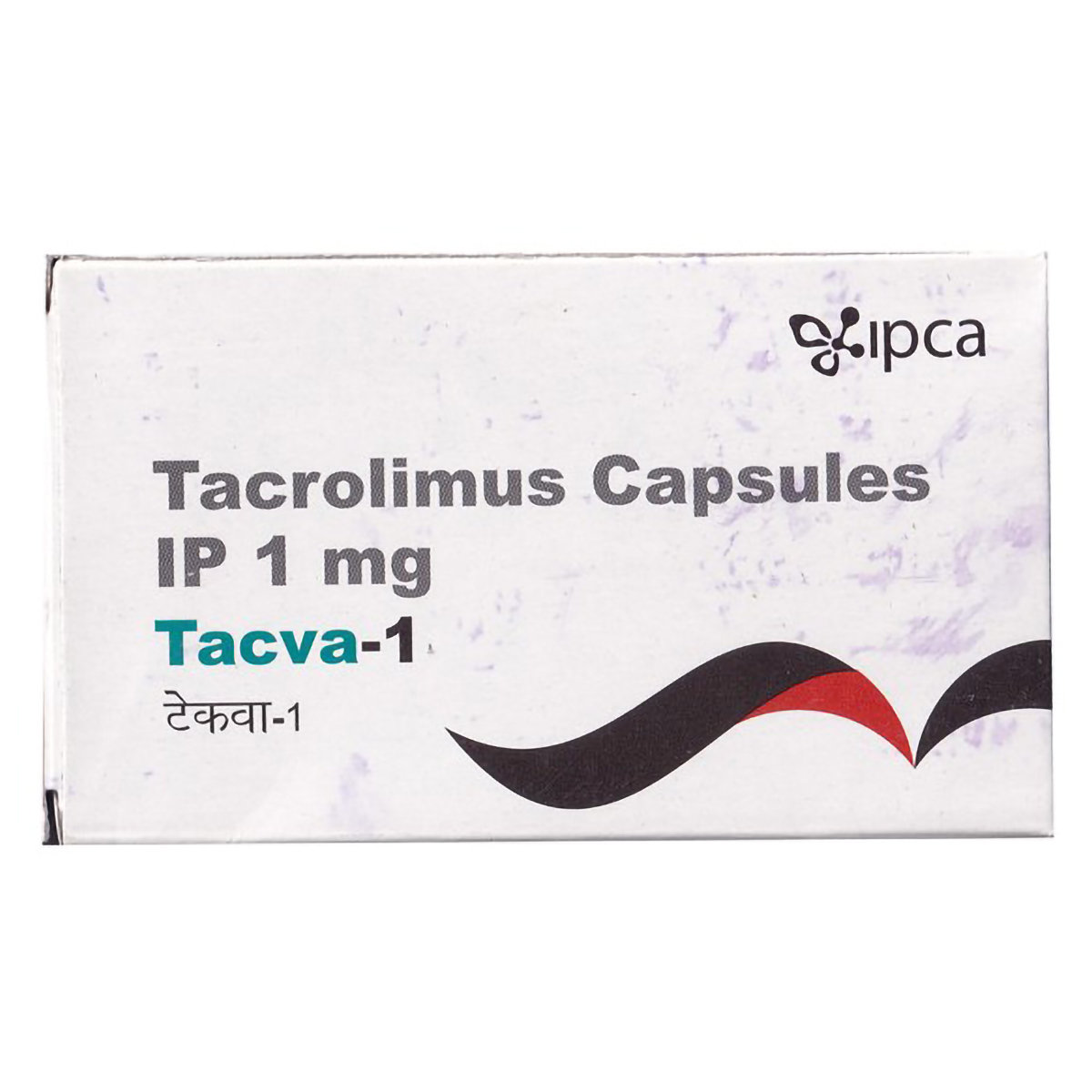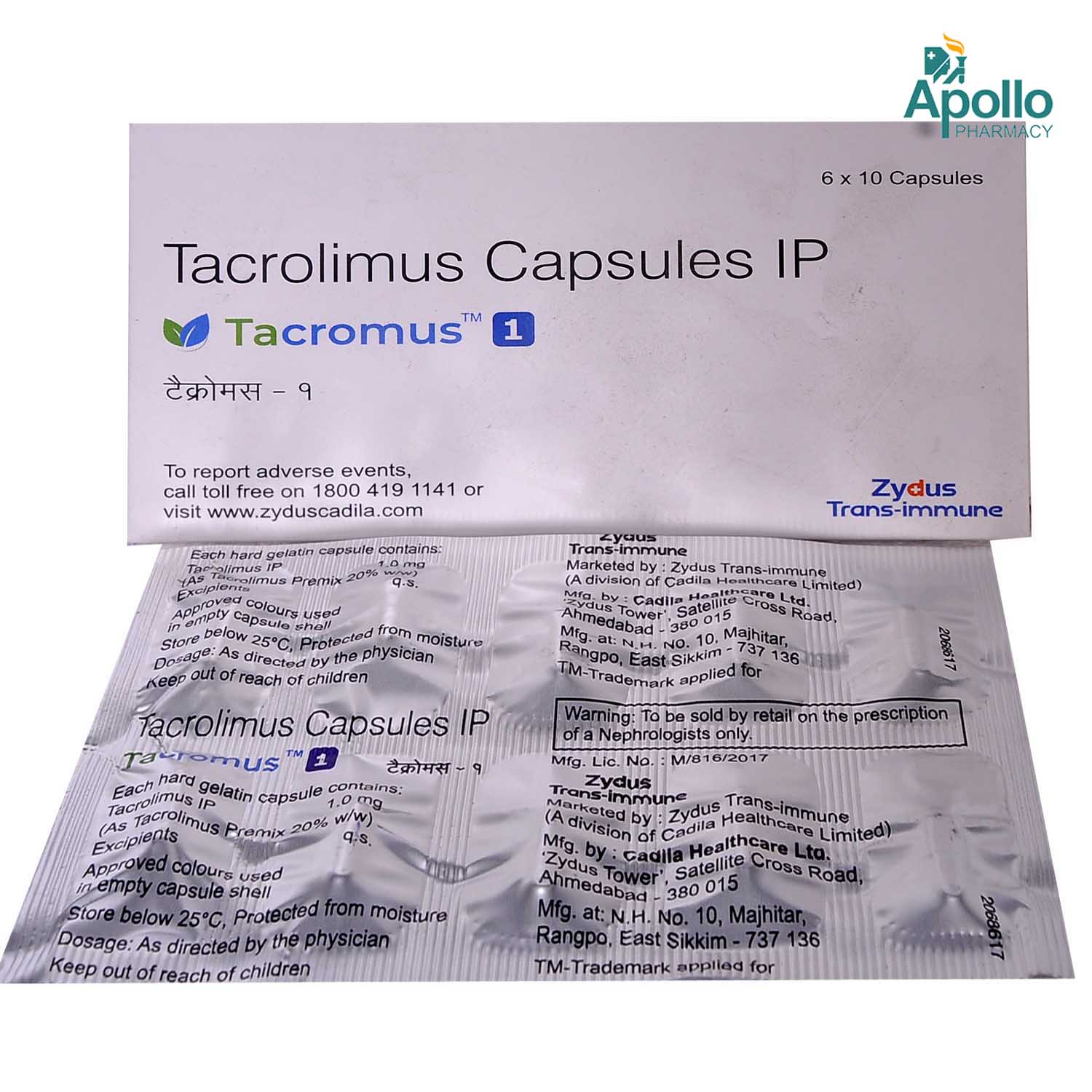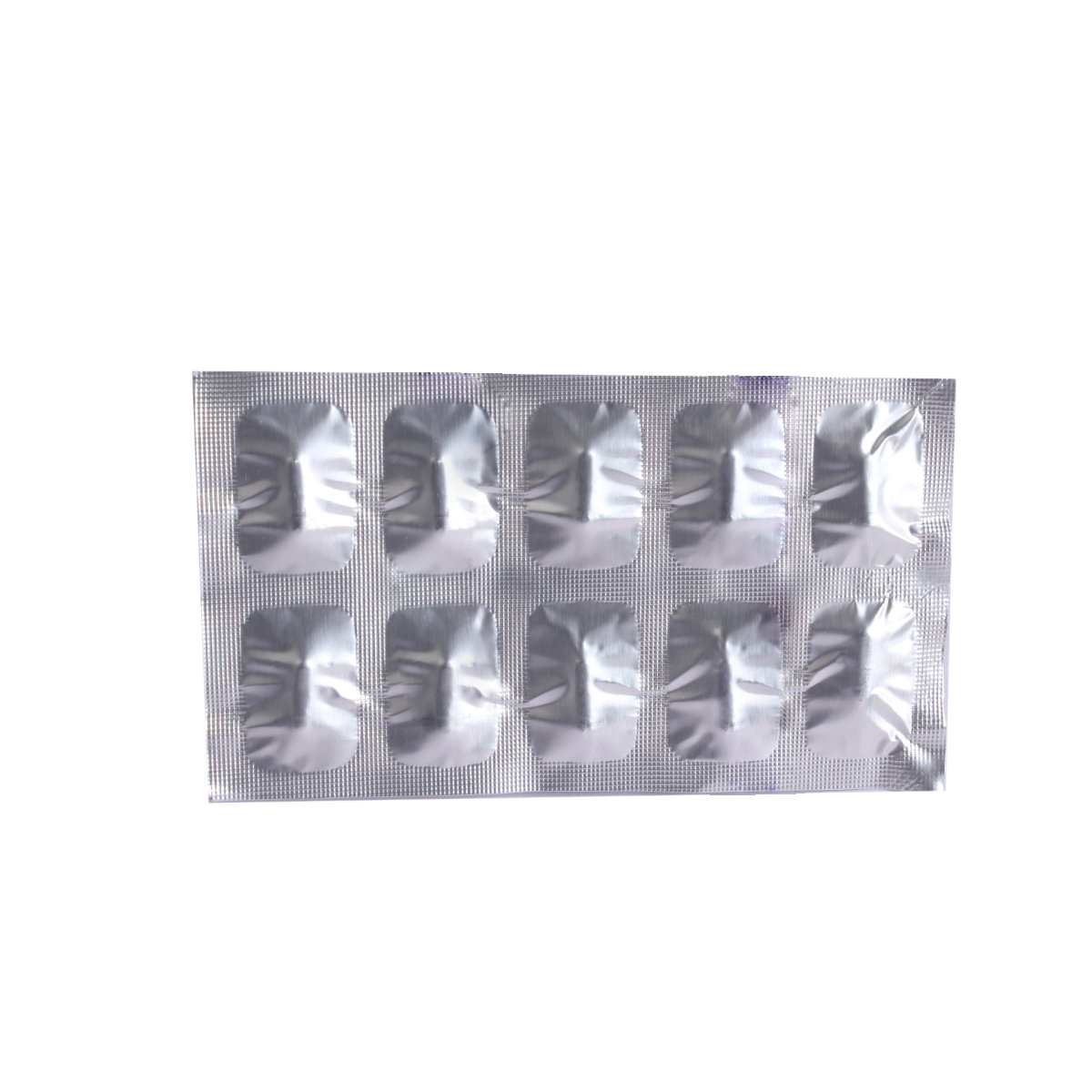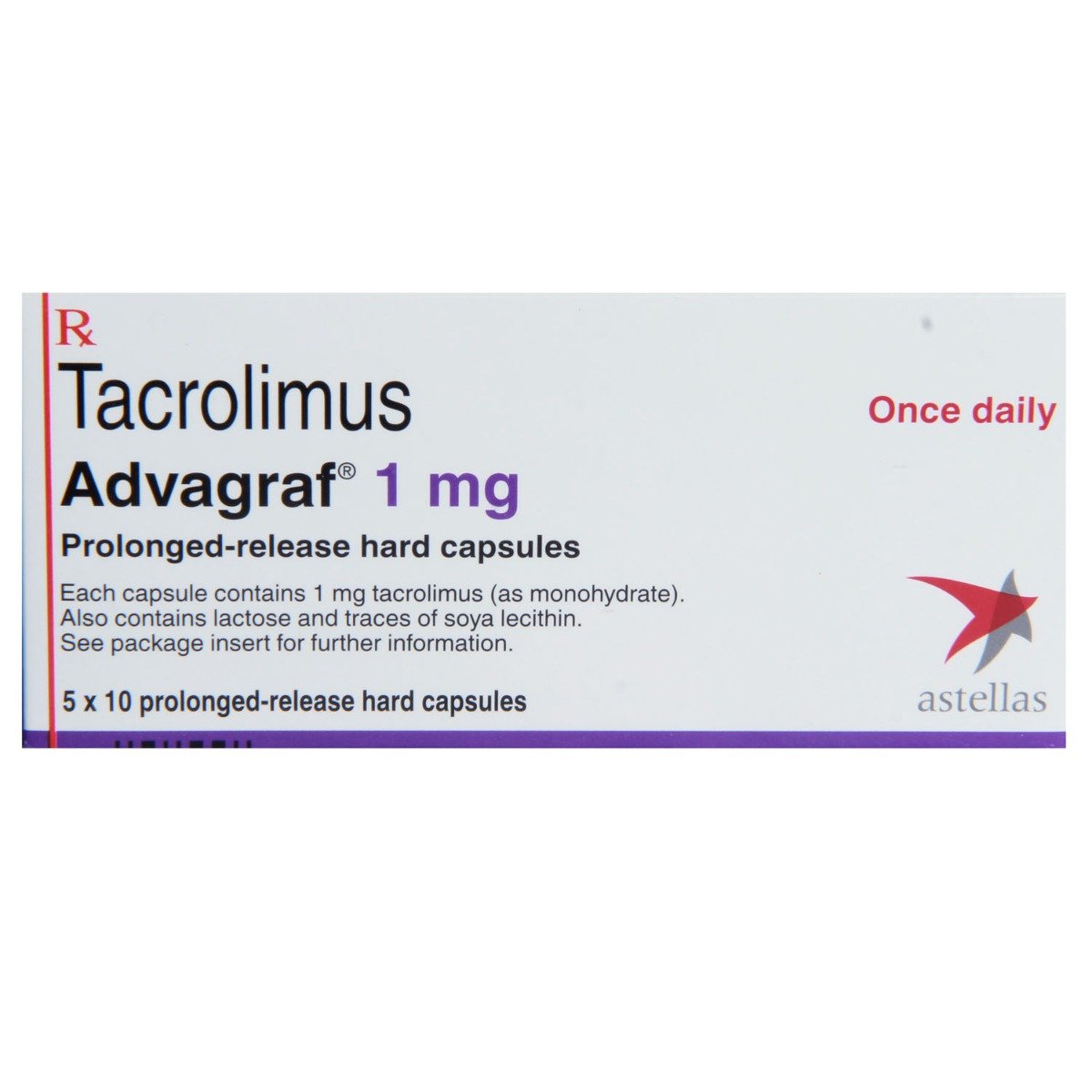SEEGRAF 1MG CAPSULE
MRP ₹454.5
(Inclusive of all Taxes)
₹54.5 Cashback (12%)
Provide Delivery Location
Online payment accepted
 Prescription drug
Prescription drugWhats That
Composition :
Manufacturer/Marketer :
Consume Type :
Expires on or after :
Return Policy :
NPPA :
About SEEGRAF 1MG CAPSULE
SEEGRAF 1MG CAPSULE belongs to a class of drugs called immunosuppressants used to prevent rejection of a transplanted organ such as a liver, kidney, or heart. Organ rejection occurs when a patient’s immune system recognizes the donor organ as foreign and tries to eliminate it.
SEEGRAF 1MG CAPSULE contains Tacrolimus, which works by suppressing the activity of T and B lymphocytes (cells in the immune system) that normally attacks foreign invaders and defend the body against foreign cells and infection. Thus, prevents organ rejection in transplanted patients and helps the body in accepting the new organ.
Take SEEGRAF 1MG CAPSULE as prescribed. You are advised to use SEEGRAF 1MG CAPSULE for as long as your doctor has recommended it for you based on your medical condition. Some people may experience nausea, diarrhoea, headache, kidney problems, infection, fever, constipation or high blood pressure. Most of these side effects of SEEGRAF 1MG CAPSULE do not require medical attention and gradually resolve over time. However, if the side effects persist or worsen, please consult your doctor.
If you are allergic to Tacrolimus or any other medicines, please tell your doctor. If you are pregnant or a breastfeeding mother, it is advised to consult a doctor before using SEEGRAF 1MG CAPSULE . Avoid alcohol consumption with SEEGRAF 1MG CAPSULE . Drive only if you are alert, as SEEGRAF 1MG CAPSULE may cause some people vision problems or nervous disturbances. If you are about to get vaccinated, inform your doctor before taking SEEGRAF 1MG CAPSULE . SEEGRAF 1MG CAPSULE may increase the risk of infections or skin cancer as it lowers the body’s immune defence system.
Uses of SEEGRAF 1MG CAPSULE
Directions for Use
Key Benefits
SEEGRAF 1MG CAPSULE contains Tacrolimus, an immunosuppressant used to prevent organ rejection after a transplant. SEEGRAF 1MG CAPSULE suppresses the activity of T and B lymphocytes (cells in the immune system) that normally attacks foreign invaders and defend the body against foreign cells and infection. As a result, it helps the body accept the new organ and prevents organ rejection in patients who have had organ transplants.
Storage
- Take medications with food (if recommended): It can help prevent stomach distress and indigestion.
- Eat smaller, more frequent meals: Divide daily food intake into smaller, more frequent meals to ease digestion.
- Avoid trigger foods: Identify and avoid foods that trigger indigestion, such as spicy, fatty, or acidic foods.
- Stay upright after eating: Sit or stand upright for at least 1-2 hours after eating to prevent stomach acid from flowing into the oesophagus.
- Avoid carbonated drinks: Avoid drinking carbonated beverages, such as soda or beer, which can worsen indigestion.
- Manage stress: To alleviate indigestion, engage in stress-reducing activities like deep breathing exercises or meditation.
- Consult a doctor if needed: If indigestion worsens or persists, consult a healthcare professional to adjust the medication regimen or explore alternative treatments.
- Talk to your doctor about oral potassium supplements.
- Eat potassium rich foods such as bananas, avocados, oranges, dark leafy greens, beans and peas, fish, spinach, milk and tomatoes.
- Boost your immunity by including immune rich foods in your diet and always remember to stay hydrated.
- Get sufficient sleep and manage stress which helps in improving white blood cell count.
- Consult your doctor for an effective treatment to improve the blood cell count and get regular body check up to monitor changes in the count.
- Try to prevent the factors that cause a decrease in the white blood cells that may lead to impaired immunity.
- Notify your doctor immediately if you experience tremors or involuntary shaking after taking medication or adjusting your medication regimen.
- Your doctor may adjust your medication regimen or recommend alternative techniques like relaxation, meditation, or journaling to alleviate tremor symptoms.
- Your doctor may direct you to practice stress-reducing techniques, such as deep breathing exercises, yoga, or journaling.
- Regular physical activity, such as walking or jogging, can help reduce anxiety and alleviate tremor symptoms.
- Your doctor may recommend lifestyle changes, such as avoiding caffeine, getting enough sleep, and staying hydrated, to help manage tremors.
- Maintain regular follow-up appointments with your doctor to monitor tremor symptoms and adjust treatment plans as needed.
- Change positions or take a break from activity to relieve symptoms.
- Avoid postures that put a lot of pressure on just one area of the body.
- If you have vitamin deficiency, take supplements or change your diet.
- Exercise regularly like cycling, walking or swimming.
- Avoid sitting with your legs crossed.
- Clench and unclench your fists and wiggle your toes.
- Massage the affected area.
- Prepare for a restful night's sleep: Develop a calming pre-sleep routine, like reading or meditation, to help your body relax and prepare for sleep.
- Create a sleep-conducive Environment: Make bedroom a sleep haven by ensuring it is quiet, dark and calm.
- Follow a Sleep Schedule: Go to bed and get up at the same time every day to help regulate your body's internal clock and increase sleep quality.
- Try relaxing techniques like deep breathing, mindfulness meditation and any others.
- Limit stimulating activities before bedtime: Avoid stimulating activities before bedtime to improve sleep quality.
- Monitor Progress: Keep track of your sleep patterns to identify areas for improvement.
- Consult a doctor if needed: If these steps don't improve your sleep, consult a doctor for further guidance and therapy.
Drug Warnings
Please tell your doctor if you are allergic to Tacrolimus or other medicines. If you are pregnant or a breastfeeding mother, it is advised to consult a doctor before using SEEGRAF 1MG CAPSULE . Avoid alcohol consumption with SEEGRAF 1MG CAPSULE . Drive only if you are alert, as SEEGRAF 1MG CAPSULE may cause vision problems or nervous disturbances in some people. If you are about to get vaccinated, inform your doctor before taking SEEGRAF 1MG CAPSULE . SEEGRAF 1MG CAPSULE may increase the risk of infections or skin cancer as it lowers the body’s immune defence system. While taking SEEGRAF 1MG CAPSULE , you are advised to wear protective clothing and sunscreen while going out. You are recommended to use glass or metal materials to prepare the oral suspension. Avoid using plastic (PVC) materials to prepare the suspension as the granules will stick to a plastic container, and your child may not receive their full dose. Do not inhale or let the granules or prepared oral suspension come in contact with your skin or eyes. In case of accidental contact with skin, wash the area well with soap and water, and if it comes in contact with the eyes, rinse with plain water.
Drug-Drug Interactions
Drug-Drug Interactions
Login/Sign Up
Taking Seegraf 1mg Capsule with Mifepristone may significantly increase the blood levels of Seegraf 1mg Capsule, which may increase the risk and/or severity of side effects.
How to manage the interaction:
Taking Seegraf 1mg Capsule with Mifepristone is not recommended, but it can be taken together if prescribed by a doctor. However, consult your doctor if you experience unusual symptoms. Do not discontinue any medications without consulting a doctor.
Taking Seegraf 1mg Capsule with Ziprasidone can increase the risk of irregular heart rhythm.
How to manage the interaction:
Taking Seegraf 1mg Capsule with Ziprasidone together can possibly result in an interaction, but it can be taken if a doctor has advised it. However, consult a doctor immediately if you experience any symptoms such as sudden dizziness, lightheadedness, fainting, shortness of breath, or heart palpitations. Do not discontinue any medications without consulting a doctor.
Taking cidofovir with Seegraf 1mg Capsule can increase the risk of kidney problems.
How to manage the interaction:
Taking Seegraf 1mg Capsule with Cidofovir is not recommended, but it can be taken together if prescribed by a doctor. However, consult your doctor immediately if you experience nausea, vomiting, loss of hunger, increased or decreased urination, sudden weight gain swelling, shortness of breath, bone pain, muscle cramps, tiredness, weakness, dizziness, confusion, and irregular heart rhythm. Do not stop using any medications without first talking to your doctor.
Taking Seegraf 1mg Capsule with saquinavir can increase the risk of irregular heart rhythm.
How to manage the interaction:
Taking Seegraf 1mg Capsule with Saquinavir is not recommended, but it can be taken together if prescribed by a doctor. However, consult your doctor if you experience sudden dizziness, lightheadedness, fainting, shortness of breath. Do not discontinue any medications without consulting a doctor.
Taking Seegraf 1mg Capsule with dronedarone can increase the risk of irregular heart rhythm.
How to manage the interaction:
Taking Seegraf 1mg Capsule with Dronedarone is not recommended, but can be taken together if prescribed by a doctor. However, consult your doctor if you experience sudden dizziness, lightheadedness, fainting, shortness of breath. Do not discontinue any medications without consulting a doctor.
Combining Seegraf 1mg Capsule with Thioridazine can increase the risk of irregular heart rhythm.
How to manage the interaction:
Taking Seegraf 1mg Capsule with Thioridazine is not recommended, but it can be taken together if prescribed by a doctor. However, consult your doctor if you experience sudden dizziness, lightheadedness, fainting, shortness of breath. Do not discontinue any medications without consulting a doctor.
Taking Seegraf 1mg Capsule with nelfinavir may significantly increase the blood levels of Seegraf 1mg Capsule, which may lead to severe side effects such as infections, high sugars, kidney problems, high blood pressure, heart problems and hyperkalemia(high potassium levels in blood).
How to manage the interaction:
Although taking Seegraf 1mg Capsule and nelfinavir together can possibly result in an interaction, it can be taken if your doctor has prescribed it. However, consult the doctor immediately if you experience symptoms such as nausea, vomiting, loss of appetite, increased or decreased urination, sudden weight gain or weight loss, fluid retention, swelling, shortness of breath, muscle cramps, tiredness, weakness, dizziness, confusion, and irregular heart rhythm. Do not discontinue any medications without consulting a doctor.
Taking Seegraf 1mg Capsule with telithromycin may significantly increase the blood levels of Seegraf 1mg Capsule, which may lead to severe side effects such as infections, diabetes, kidney problems, high blood pressure, heart problems and hyperkalemia(high potassium levels in blood).
How to manage the interaction:
Although taking Seegraf 1mg Capsule and telithromycin together can possibly result in an interaction, it can be taken if your doctor has prescribed it. However, consult the doctor immediately if you experience symptoms such as nausea, vomiting, loss of hunger, increased or decreased urination, sudden weight gain or weight loss, fluid retention, swelling, shortness of breath, muscle cramps, tiredness, weakness, dizziness, confusion, and irregular heart rhythm. Do not discontinue any medications without consulting a doctor.
Taking Seegraf 1mg Capsule with Adalimumab may increase the risk of serious infections.
How to manage the interaction:
Although taking Seegraf 1mg Capsule and adalimumab together can possibly result in an interaction, it can be taken if your doctor has prescribed it. However, consult the doctor immediately if you experience symptoms such as fever, chills, diarrhea, sore throat, muscle aches, shortness of breath, weight loss, red or inflamed skin, body sores, and pain or burning during urination. Do not stop using any medications without consulting doctor.
Taking Seegraf 1mg Capsule with amprenavir may significantly increase the blood levels of Seegraf 1mg Capsule, which may lead to severe side effects.
How to manage the interaction:
Although taking Seegraf 1mg Capsule and amprenavir together can possibly result in an interaction, it can be taken if your doctor has prescribed it. However, consult the doctor immediately if you experience symptoms such as nausea, vomiting, loss of appetite, increased or decreased urination, sudden weight gain or weight loss, fluid retention, swelling, shortness of breath, muscle cramps, tiredness, weakness, dizziness, confusion, and irregular heart rhythm. Do not discontinue any medications without consulting a doctor.
Drug-Food Interactions
Drug-Food Interactions
Login/Sign Up
Grapefruit Juice, Grapefruit
How to manage the interaction:
Taking of grapefruit or grapefruit juice while on Seegraf 1mg Capsule treatment may lead to increased Seegraf 1mg Capsule levels in blood. Avoid or limit grapefruit or grapefruit juice intake during treatment with Seegraf 1mg Capsule.
Diet & Lifestyle Advise
Kidney transplant:
- Include fruits and vegetables in your daily routine.
- Follow a vitamin-C-rich diet.
- Reduce salt intake.
- Eat a handful of walnuts and almonds every day.
- Reduce intake of unhealthy cholesterol and fats.
- Consume dark chocolate with at least 70% cocoa.
Liver and Heart transplant:
- Eat whole-grain bread, cereals and other grains, fruits and vegetables, lean meats, fish and poultry.
- Maintain a low-fat and low-salt diet.
- Drink low-fat milk or eat other low-fat dairy products to maintain adequate calcium.
- Stay hydrated by drinking sufficient water and other fluids.
- Avoid alcohol consumption.
- Avoid grapefruit and grapefruit juice.
Side Effects of SEEGRAF 1MG CAPSULE
- Nausea
- Diarrhoea
- Headache
- Kidney problems
- Infection
- Constipation
- Fever
- High blood pressure
Habit Forming
Therapeutic Class
All Substitutes & Brand Comparisons
RX
Renelimus-1 Capsule 10's
Rene Lifescience
₹379.5
(₹34.16 per unit)
14% CHEAPERRX
Tacsant 1 mg Capsule 10's
Novartis India Ltd
₹404
(₹35.55 per unit)
11% CHEAPERRX
Biomus-1 Capsule 10's
Alniche Life Sciences Pvt Ltd
₹419.5
(₹36.92 per unit)
7% CHEAPER
Author Details
We provide you with authentic, trustworthy and relevant information
Drug-Diseases Interactions
Drug-Diseases Interactions
Login/Sign Up
FAQs
SEEGRAF 1MG CAPSULE contains Tacrolimus, an immunosuppressant that works by the activity of T and B lymphocytes (cells in the immune system) that normally attacks foreign invaders and defend the body against foreign cells and infection. As a result, it helps the body accept the new organ and prevents organ rejection in patients who have had organ transplants.
SEEGRAF 1MG CAPSULE may increase the risk of infections as it may weaken the immune system. Therefore, consult a doctor immediately if you have any signs of infection, such as sore throat or fever.
SEEGRAF 1MG CAPSULE may increase the risk of skin cancer. Therefore, avoid or limit exposure to the sun for a long time or artificial light such as tanning beds. Wear protective clothing and use sunscreen before going out in the sun.
If you are about to receive any vaccinations, especially live vaccines such as measles, mumps, rubella (MMR), oral polio, varicella, yellow fever, intranasal influenza, BCG and TY21a typhoid vaccines, inform your doctor that you are taking SEEGRAF 1MG CAPSULE because it may reduce the effectiveness of the vaccine and increase your risk of contracting the infection that the vaccine is meant to protect against.
Using SEEGRAF 1MG CAPSULE with Sirolimus is not recommended in patients who have had heart or liver transplants. It is unknown if kidney transplant recipients can use it safely. Hence, please seek medical advice before combining SEEGRAF 1MG CAPSULE with other medications.
Drug-Drug Interactions Checker List
- CYCLOSPORINE
- SIROLIMUS
- NELFINAVIR
- PHENYTOIN
- ITRACONAZOLE
- KETOCONAZOLE
- VORICONAZOLE
- ERYTHROMYCIN
- CLARITHROMYCIN
- TRIAMTERENE
- AMILORIDE
Special Advise
Regular blood tests and certain other tests are recommended while taking SEEGRAF 1MG CAPSULE to check blood sugar levels, kidney functioning and potassium levels in the blood.
Disease/Condition Glossary
Organ rejection: It occurs when a patient’s immune system recognizes the donor organ as foreign and tries to eliminate it. Organ rejection may be hyperacute (occurs in minutes to hours), acute (occurs within the first few months), or chronic (occurs after a year or anytime beyond). The symptoms of organ rejection may vary based on the type of organ transplant you have had. However, if you experience pain, fever, or other signs of illness, contact your doctor immediately.

Have a query?
Alcohol
Safe if prescribed
Avoid alcohol consumption with SEEGRAF 1MG CAPSULE as it may increase the risk of adverse effects. Please consult a doctor before consuming alcohol with SEEGRAF 1MG CAPSULE .
Pregnancy
Consult your doctor
Using Tacrolimus during pregnancy may cause kidney dysfunction or neonatal hyperkalemia (high potassium levels in the blood). Therefore, please consult a doctor if you are pregnant before taking SEEGRAF 1MG CAPSULE and if you are a woman of childbearing age, use effective contraceptive methods while using SEEGRAF 1MG CAPSULE .
Breast Feeding
Consult your doctor
SEEGRAF 1MG CAPSULE may be excreted in breast milk. Therefore, please inform your doctor if you are a breastfeeding mother before taking SEEGRAF 1MG CAPSULE . You should avoid taking SEEGRAF 1MG CAPSULE during breastfeeding or avoid breastfeeding while on treatment with SEEGRAF 1MG CAPSULE .
Driving
Safe if prescribed
SEEGRAF 1MG CAPSULE may cause vision problems or nervous disturbances in a few people. Therefore, avoid driving if you experience any of these symptoms after taking SEEGRAF 1MG CAPSULE .
Liver
Consult your doctor
Please consult a doctor if you have liver diseases/conditions before taking SEEGRAF 1MG CAPSULE .
Kidney
Consult your doctor
Please consult a doctor if you have Kidney diseases/conditions before taking SEEGRAF 1MG CAPSULE .
Children
Safe if prescribed
SEEGRAF 1MG CAPSULE should be used in children in doses as advised by a doctor only.





